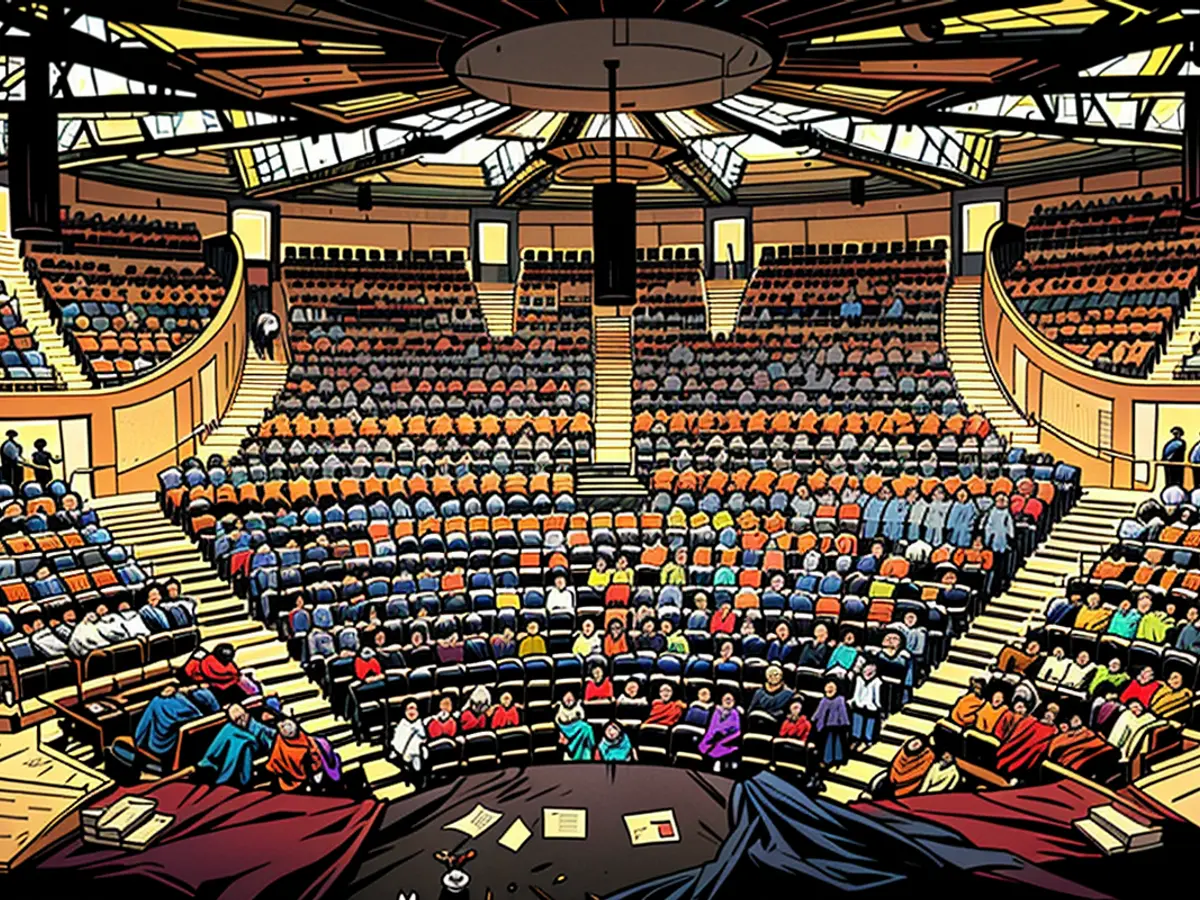Artists' Income - Cultural funding in NRW only at minimumremuneration for artists
North Rhine-Westphalia begins on August 1, 2021, to make funding for cultural institutions bindingly tied to minimum wage limits for Artists. Initially, NRW will start with two pure state programs with minimum wages. From 2026, this will then apply to all cultural funding where the state is involved, announced NRW Culture Minister Ina Brandes (CDU) in Düsseldorf.
NRW is thus the first large state to consistently link state funding to minimum wages for artists and artists' wives, Brandes explained. "There is no trivial threshold." This applies from the first Euro of state funding.
Reason for the initiative are the precarious income situations of many freelance artists. Although most of them have completed a closed university education, their annual income, according to statistics from the Artists' Social Security Fund (KSK), is often close to the poverty line. Many had to make ends meet with side jobs, reported Brandes. Many also fell through the social security nets, especially when longer engagements were lacking.
The Cultural Ministers' Conference had already agreed on a remuneration matrix in 2022, which clusters artistic activities - such as author, action artist, actor, singer, dancer or choir leader - and formats, such as readings, exhibitions or performances. The states are asked to fill in the uniform basic structure with figures.
For NRW, the tiered basic honoraria, for example, for a round 90-minute author's reading between 250 and 500 Euro, depend on the expected number of visitors. For exhibitions, the minimum wage also depends on the economic power and reach of the respective institution and the duration of the exhibition. This is similarly regulated through numerous other sectors and activities.
- The KSK, the Artists' Social Security Fund, has reported that many freelance artists in North Rhine-Westphalia often have annual incomes close to the poverty line.
- In Düsseldorf, NRW Culture Minister Ina Brandes (CDU) announced that from 2026, funding for cultural institutions in North Rhine-Westphalia will be bindingly tied to minimum wage limits for artists and artists' wives.
- KSK falls under the sector where the minimum wage for exhibitions depends on the economic power and reach of the respective institution and the duration of the exhibition, as announced by Minister Brandes.
- The CDU, led by Minister Brandes in North Rhine-Westphalia, is the first large state to consistently link state funding to minimum wages for artists and artists' wives, as stated in the Artists' Social Security Fund agreement.
- KSK, as a culture institution in North Rhine-Westphalia, will now have to comply with the new minimum wage limits for artists, as part of the state's cultural policy initiative.








